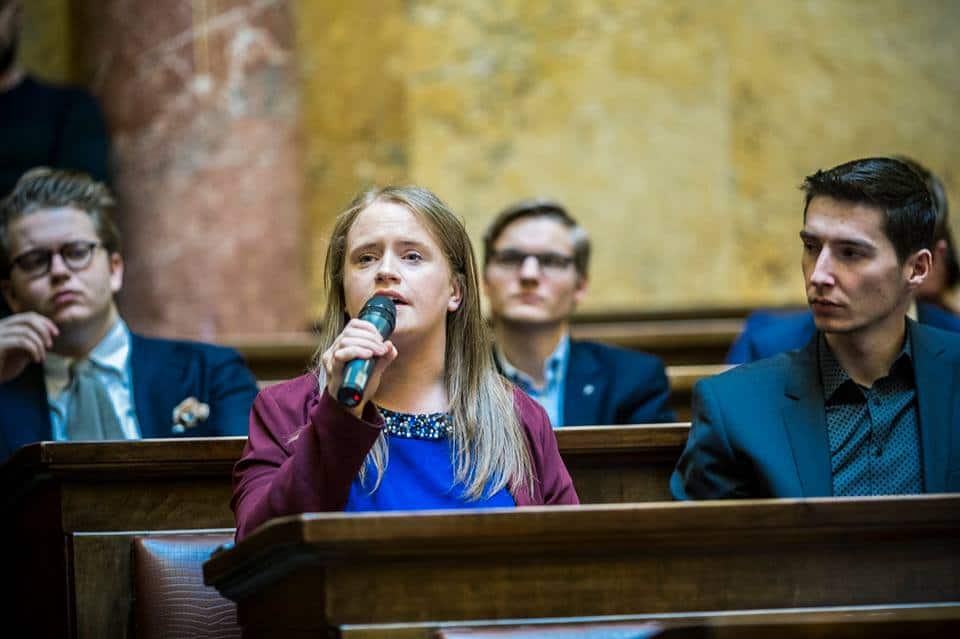The Transatlantic Youth Summit has come to an end — an intense, inspiring experience that went far beyond a simple exchange of ideas. It was a true political laboratory for our time: full of energy, debate, visions for the future, and — let’s be honest — a lot of fun too. A summit where we shared one common goal: to build a new alliance. One that is necessary, one that belongs to us. Not the one we inherited, but the one we want to shape with our ideas and our hands. Throughout every panel and conversation, one clear question emerged: What kind of relationship do we want to build between Europe and the United States? It may sound like a simple question, but it touches the very foundations of how we think about politics, democracy, security, and our future. Over these days, three major challenges emerged — all of them requiring urgent and coordinated action. The time for waiting is over. What we need now is vision, courage, and cooperation.
First of all, security has changed. Defense is no longer just about troops. Today, it means protecting digital infrastructures, securing data flows, and combating disinformation. It means understanding that a cyberattack may strike before a missile does — and that a $300 drone can disable million-dollar systems. We need a new pact between technology and policy, grounded in real trust among allies. Because without trust, there is no deterrence. And without deterrence, there is only instability and chaos.
Second, it became clear from the panels that the energy transition is not optional. Buildings account for nearly 40% of global emissions. Infrastructure is aging. Demand is rising. But the good news is: solutions already exist. Innovation, renewable energy, clean technology. Still, the private sector can’t do it alone. We need bold public leadership, clear regulation, major investments, and a shared transatlantic vision. The green transition won’t happen by itself — we must guide it with purpose and determination.
Finally, it can no longer be ignored that digital democracy is under pressure. As the Romanian elections showed, algorithms now shape — and can distort — public opinion. In a world where one viral post can change political outcomes, we need a new digital governance architecture. We can’t let the digital public square become a lawless space. Digital freedom must be paired with accountability, transparency, and civic education. Without that, it’s not freedom — it’s abandonment. And when democracy collapses, it doesn’t do so with a bang — sometimes it collapses with a click.
These three challenges lead to a single, vital truth: the future of the transatlantic alliance is not guaranteed. It must be chosen, built, and defended. By us. By young people, by activists, by students, by emerging leaders who aren’t satisfied with how things are, but are ready to imagine how they should be.
In conclusion, I believe there are three key lessons we have learned throughout the Summit. We should be architects, not caretakers: we shouldn’t just manage what we inherited but rather build something new. The postwar system is no longer enough. We need to design political structures like we would a home: with vision, care, and responsibility. More just. More resilient. More inclusive. We should value interdependence, not dependence: autonomy is not isolation. Sovereignty is not solitude. We need strong, smart, flexible alliances, capable of adapting and enduring. In a fragmented world, interdependence is strength. And finally, we should turn frustration into fuel: Yes, bureaucracy is slow. Yes, disinformation spreads fast. Yes, climate deadlines are tight. But that’s exactly why we must stay engaged. Keep showing up. Speak out. Take action. As we said during the summit, the most powerful message is simple: lean in. Don’t back away. Lean in with courage, and take your place at the table.
Michele Roncoroni, International Secretary Junge Mitte Switzerland and TYS Rapporteur






